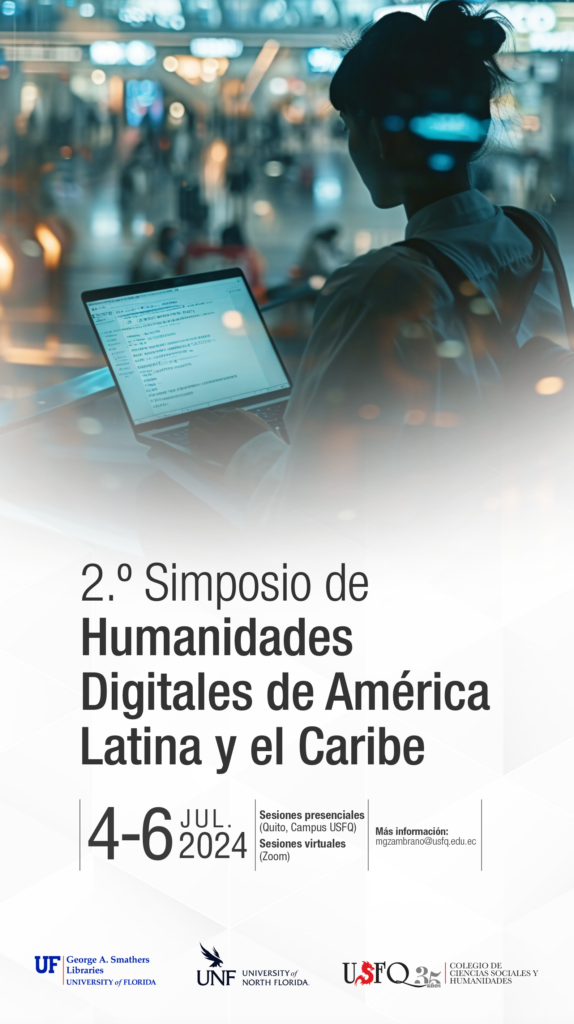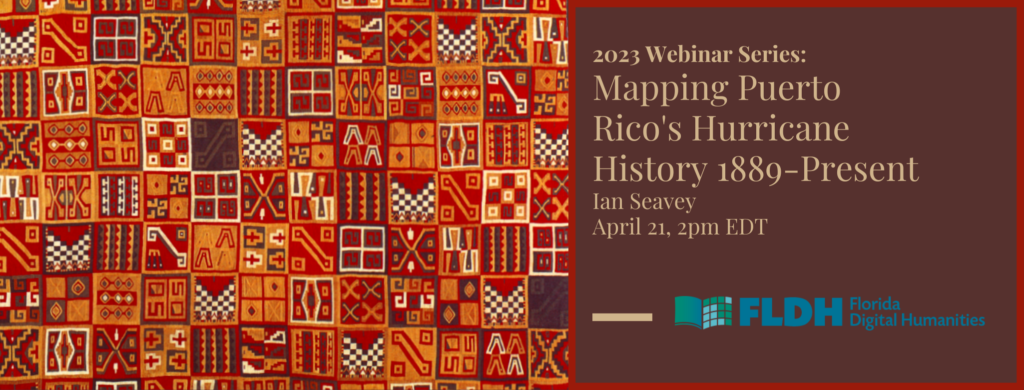Please join us this September and October for our last FLDH webinars of 2023. And remember, all of our webinars are recorded and the videos are available on the FLDH YouTube page as well as on the Webinar Series page.
Tracking Religious Racism in Brazil
Tuesday, September 12, 12 p.m EDT
Register here
Dr. Danielle N. Boaz, Associate Professor, University of North Carolina at Charlotte & Gustavo Melo Cerqueira, Babalorixá, Ilê Axé Omi Ogun siwajú and VP of the ICCRR
Religious racism is a form of religious discrimination that is rooted in racialized prejudices against a particular faith or faiths. The concept of religious racism comes from Brazil, where activists use the phrase “racismo religioso” to refer to discrimination against Afro-Brazilian religions such as Candomblé and Umbanda. Our webinar would talk about the International Commission to Combat Religious Racism’s (ICCRR) digital resources on Brazil. On August 22, 2022, the ICCRR released its revised map, spreadsheet, and report on Religious Racism in Brazil. These materials analyze 500 cases of religious intolerance against Afro-Brazilian faiths that have taken place since 2000. This is an ongoing project that was started in 2019 and has taken more than 1000 hours to complete. The ICCRR plans to update these materials annually, adding and analyzing new cases. The report is designed to provide some insights about the patterns and statistics that can be observed from the cases. The spreadsheet database provides details on the cases such as the name of the victim, the name of the perpetrator, the type of intolerance, the location of the intolerance, and data about the victim and the perpetrator such as age and gender. The interactive maps track the cases that are listed in the database. Each entry on the map includes a summary of the incident and links to available photos and videos. Both maps contain the same data; however, one organizes the cases by year and the other organizes the cases by type of discrimination.
“Amigos de los Muelles.” Mapping how transatlantic solidarities shaped the Curaçaoan Radical Movement, 1900-1940
Friday, September 15, 2 p.m EDT
Register here
Thomas van Gaalen, PhD Candidate in the Department of Modern Languages and Cultures, Radboud University (The Netherlands)
Towards the late 19th century, heightened patterns of exchange and interaction emerged between socialists across the world. The ideal of international solidarity, which had become increasingly important for socialists, attracted a wide variety of radicals from a wide variety of regions. Where historical scholarship has often treated socialism as, with Talbot Imlay, a “European phenomenon,” this presentation demonstrates how the socialist framework of international solidarity was adopted and adapted by diverse movements across the Atlantic. The presentation reframes the Dutch Caribbean island of Curaçao as a node in vivid transatlantic interactions between socialists and radicals. Using digital relational interface Nodegoat to visualize and map these interactions, the presentation shows how global exchanges that were made possible by the island’s connection to maritime networks encouraged Curaçaoan radicals to engage with the idea of international solidarity. Doing so allowed them to link their struggles to a broader cause, and to put new forms of solidarity into practice at harbor strikes, revolts and anticolonial campaigns. Synthesizing digital visualization and distant reading tools with non-digital archival research, this presentation brings these underexposed but influential Caribbean histories of emancipation into view. These render visible the rich history of transatlantic exchange on Curaçao, an island commonly framed as “isolated” in scholarship. By uncovering forgotten conceptions of international solidarity, the presentation furthermore invites vital discussions on formulating an international solidarity fit to tackle today’s increasingly global challenges.
Digital Archives as Decolonial Practice
Friday, September 29, 2 p.m EDT
Register here
Dr. Ricia Anne Chansky, Professor and Director of the Oral History Lab, UPR Mayaguez; Jose Morales Benitez, Librarian, UPR Mayaguez & Christina Boyles, Assistant Professor of Culturally Engaged Digital Humanities, Michigan State University
Traditional academic research often relies on the violence of extraction—the taking of people, resources, goods, and ideas from the marginalized in order to serve the needs of those in power. Community-engaged research requires academics to reject extractive forms of knowledge acquisition and relegate authority and control of project processes and outcomes to the participating community members.
The collaboration between the Oral History Lab (OHL) at the University of Puerto Rico at Mayagüez (UPRM) and the Archivo de Respuestas Emergencias de Puerto Rico (AREPR)—which includes teams at Michigan State University and UPR Río Piedras—has afforded us the opportunity to re-vision digital archives as spaces for communities to self-narrate their lived experiences with disaster and survival. Our proposed webinar traces the lines of community archiving as decolonial practice through our linked projects, including aspects of archives and pedagogy, access to archives, community archives, and collaborative archiving strategies.
Our working model leads to the creation of archival collections shaped by the community and characterized by a high degree of accessibility and immediate relevance, which can serve as tools for transformation by preserving and disseminating the perspectives, lived experiences, and work of individuals and community organizations who do not traditionally have access to public discourses.
Our presentation will include discussion of:
- The relevant courses at UPRM, which culminate in digitally archiving students’ oral history projects, a model that has demonstrated significant pedagogical value as it strengthens students’ sense of agency by placing them in the role of creators of new primary sources with enduring value while underscoring their connectivity to their home communities across the archipelago.
- The OHL “Speaking into Silences” project—funded by a Digital Justice Development grant from the ACLS—which brings together four mutual aid organizations from across the Puerto Rican archipelago to create onsite digital archives with mirror collections housed in the UPRM repository. Each local site will develop a public-facing digital output that bridges to the larger archive, such as a geospatial map, playlist, or calendar.
- How AREPR—a collaborative, multilingual oral history storytelling project funded by the Andrew W. Mellon Foundation—utilizes methodologies grounded in community archiving and digital humanities to center community knowledges in active fieldwork; a process that both uplifts local experiences and has the potential to reshape the ways in which researchers envision their research projects as people-first, socially-conscious, and non-extractive.
Afro-Artivismo: Redefining Black Masculinity in São Paulo, Brazil
Friday, October 20, 2 p.m EDT
Register here
Eliseo Jacob, Master Instructor in the Department of World Languages & Cultures, Howard University
This webinar will focus on a DH Project I have been developing on artist activist communities in the urban periphery of São Paulo, Brazil. This project came about as a result of the research I conducted in São Paulo in 2022 through a Fulbright U.S. Scholar Award. I participated and observed different writing collectives, music groups, and performance artists in the working class communities located in the outskirts of Latin America’s largest city. The digital humanities component of this project started with my collaboration with the Black Book Interactive Project (BBIP), a Black DH initiative housed at the University of Kansas, in their Digital Scholars Program in 2019. Since then, I have participated in other BBIP programs, including their Digital Publishing Program that works closely with Afro-Publishing Without Walls (Afro-PWW), a digital publishing initiative at the University of Illinois. I am currently developing a digital publication with Afro-PWW using the Scalar platform that will focus on the all male Afro-Brazilian theater group Terreiro Encantado and their use of theater as way to address the genocide of Black youth in the urban periphery. This digital publication will be the first in a series of Scalar sites on Black artists from the urban periphery that will be published by Afro-PWW that will be framed by the notion of Afro-Artivismo in Brazil’s urban communities. I also intend to share how scholars can develop DH projects that involve community participation and feedback.

